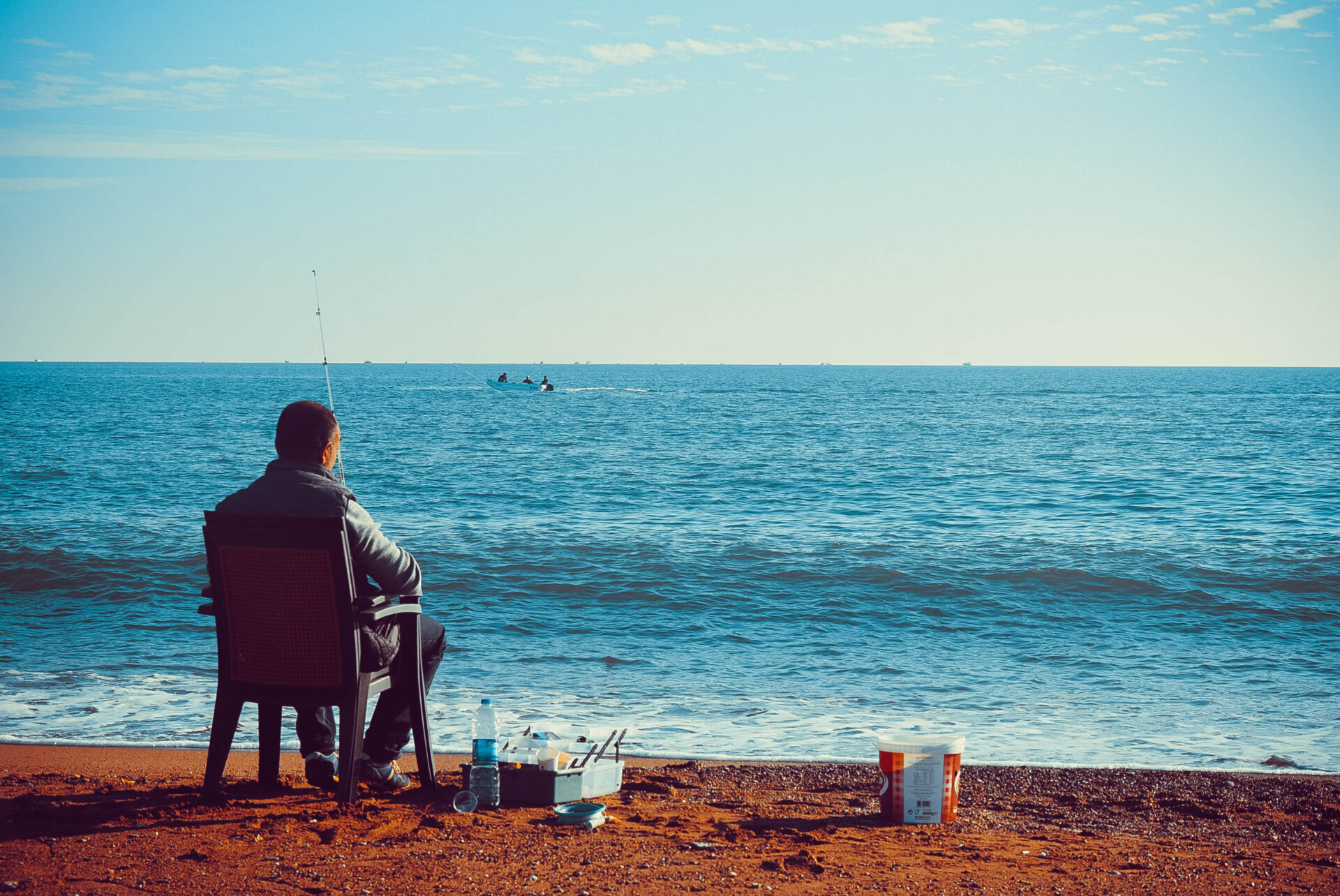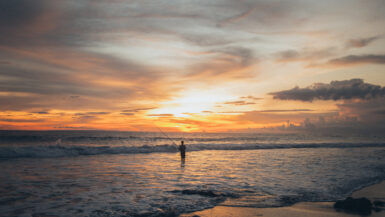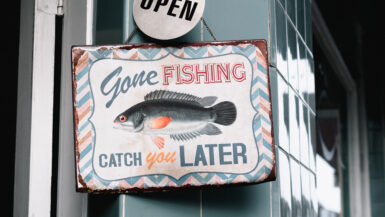Freshwater anglers are an adventurous breed. They spend hours on the water in search of the best catches, and although experienced anglers may have luck on their side, even the best can make mistakes. Whether you are a beginner or a seasoned pro, it’s important to understand the common mistakes made by freshwater anglers and how to avoid them. In this article, we’ll discuss five common mistakes made by freshwater anglers and provide tips on how to avoid them.
Misinformed Tackle Selection
Freshwater anglers often make the mistake of using outdated, inadequate tackles that are too weak or not suited for the type of fish they are trying to catch. It’s important to select the proper tackle for the species and conditions. For example, for freshwater bass fishing, a medium to heavy action rod and reel with an appropriate line test should be used. Additionally, specific lures should be chosen to target a particular species. When fishing for trout, certain lures or baits should be chosen that are designed for trout to increase success. When it comes to tackle selection, it’s important to do your research and invest in quality equipment that is designed for the fishing conditions you’ll be encountering.
Improper Rigging Techniques
Using the right equipment is only half the battle, as improper rigging techniques can be just as detrimental. This includes using the wrong size hooks, using the wrong type of knot, not tying the knot correctly, or using the wrong tippet size. A mistake here can lead to poor lures placement, tangles, and lost fish. A good rule of thumb is to practice knots and tying techniques on dry land before attempting them in the water. Additionally, utilize knot tying tools and other resources to perfect your technique.
Failing to Pack the Proper Supplies
Anglers should always come prepared by packing the essential supplies and tools. This should include extra line, hooks, weights, lures, pliers, etc. Additionally, non-fishing items such as sunscreen, insect repellant, rain gear, and a first-aid kit should be included. Stocking up on the appropriate supplies can save time and energy on the water and help reduce any headaches or obstacles that may arise.
Neglecting Water Conditions
Neglecting the importance of water conditions is a common mistake among freshwater anglers. Knowing the conditions of the water such as temperature, clarity, and current, can be critical knowledge when it comes to catching fish. When fishing in a lake, understanding the different types of structure is a great way to locate potential holding areas. Additionally, when fishing in a river, it’s important to be familiar with the water levels, speed and direction of the current, and the type of food that is predominant. Being aware of water conditions is an important step in successfully locating fish.
Not Adjusting to Changes
Sometimes the conditions of the water can change, and anglers must be ready to adjust. This may mean switching out lures, changing the weight of the lure, trying different bait, or altering the depth of the bait. Without adapting to these changes, anglers may lose out on potential catches. Due to this, it’s important to pay attention to the water and make the necessary adjustments when needed.
Overlooking Important Rules & Regulations
Freshwater anglers are often unaware of the many state fishing regulations that apply to their favorite sport. It’s very important to research and abide by the laws and regulations in your area. Not only will you avoid incurring a hefty fine, but you’ll be helping to conserve the natural resources in your area. Regulations vary widely from state to state, so it’s important to check with your local wildlife management agency regarding any applicable rules and regulations.
Using the Wrong Bait or Lures
One of the most common mistakes anglers make is using the wrong bait or lures for the type of fish they’re trying to catch. Different species of fish have different feeding habits, and using the wrong bait or lures can result in many fruitless hours of fishing. It’s important to do your research and know the type of fish you’re trying to catch and what kind of bait or lures they’re likely to take. Different types of water and weather conditions can also affect the success of certain baits and lures.
Failing to Maintain Equipment Properly
Fishing equipment can be expensive, so it’s important to maintain it properly in order to ensure it lasts as long as possible. Many anglers make the mistake of not cleaning and oiling their reels regularly, which can lead to premature wear and tear. Additionally, hooks, lures, and other metal objects should be thoroughly washed and dried after each use in order to prevent rust and corrosion. Fishing line should also be checked frequently for signs of wear and tear, and any fraying or breaks should be replaced.
Improperly Storing Fishing Gear
Fishing tackle and other gear should be properly stored in between trips in order to keep it in good working condition. Moisture and heat can wreak havoc on tackle boxes and other gear, so it’s important to store it in a cool, dry place. Additionally, it’s a good idea to give all of the metal parts a light coating of oil to prevent rust and corrosion.
Forgetting Safety Precautions
Freshwater anglers should always put safety first, even if it means sacrificing a few catches. It’s important to wear a life jacket, especially when fishing in a boat. It’s also important to remember to take insect repellent and sunscreen on your trips to protect you from sunburn and bug bites. Additionally, anglers should always let someone know where they’re going and when they plan to return. This will help ensure that help can be summoned in the event of an emergency.
Underestimating Weather Conditions
Freshwater anglers often fail to consider the impact that weather can have on their day of fishing, leading to a lack of success. Weather conditions, such as wind speed and direction, current, temperature, and barometric pressure can all have a major influence on what type of fish will be biting, as well as where they will be located. To ensure a successful day of fishing, anglers should take the time to research relevant weather conditions prior to heading out.
Monitoring the Weather on the Day of Fishing
In addition to researching weather conditions prior to their fishing trip, anglers should also check the weather forecast shortly beforehand, as conditions may have changed. This is especially important for anglers who may be fishing in a remote location, as the weather can often be drastically different in different parts of the same lake or river. If the forecast calls for rain or increased wind speed, anglers should consider postponing their trip and wait for better conditions.
Considering the Impact of Changing Weather on Fish Behavior
In addition to researching the weather prior to their fishing trip, anglers should also be aware of how it can change during their outing. Rapidly changing weather conditions can have a major impact on fish behavior, which can prevent anglers from catching the fish they seek. For example, during a cold front, fish will often become inactive and seek shelter, making them much harder to catch. Anglers should always be aware of how the weather is changing and adjust their strategy accordingly.
Bringing Appropriate Fishing Gear for Unpredictable Weather
When anglers are fishing in an area that is prone to sudden weather changes, it is important to bring appropriate gear. This might include extra clothes, rain gear, and a shelter to protect anglers from adverse weather. Anglers should also bring extra supplies, such as bait and lures, in case they need to stay out longer than expected due to changing conditions.
Choosing a Fishing Spot Based on Weather Conditions
Weather can have a major influence on what type of fish will be present in a particular spot. For example, during cold weather fish will typically seek out deeper and warmer water, making them harder to reach. To increase their chances of catching the fish they seek, anglers should take the time to research the weather conditions and choose a spot that is best suited to their intended target species.
Poor Fishing Etiquette
Photography, bird watching and fishing, all of these outdoor activities require respect for the environments in which they take place. Unfortunately, one of the most common mistakes that recreational freshwater anglers make is fishing without respect for the environment, other people, and the fish. This can include things like littering, polluting the water, over-fishing, or even trespassing on private property without permission. Respectful fishing etiquette involves following all laws and regulations, cleaning up after yourself, and exhibiting appropriate behavior towards your fellow anglers.
Leaving Fishing Gear Unattended
Leaving your fishing gear unattended can be dangerous and can cause a variety of problems. For starters, your gear could be damaged or stolen. This is especially problematic if you are fishing in areas with a lot of people or where theft is common. Additionally, leaving your gear unattended can lead to illegal fishing practices like snagging or poaching, which can have serious consequences. To avoid this common mistake, always keep an eye on your gear, and make sure to bring along a friend or two if you plan on leaving the area for any extended period of time.
Not Conversant With Fishing Laws
As a fish angler, it is your responsibility to be knowledgeable about local and state fishing laws. Not being conversant with these laws can lead to fines, license revocation and other legal issues. To avoid making this mistake, make sure to read the license requirements of the body of water you will be fishing, and take the time to brush up on the regulations. Additionally, be mindful of the catch limit for each species of fish you are fishing for.
Using the Wrong Bait
Using the wrong bait is one of the most common mistakes new anglers make when fishing in freshwater. The type of bait you use can make a huge difference in your success, as different types of fish prefer to feed on different types of prey. Researching the behavior and habits of the species you are targeting can help you determine which type of bait to use. Additionally, you may want to experiment with different lures and baits until you find the one that works best for your intended catch.
Losing Sight of Safety
Finally, freshwater anglers should not forget about safety. Make sure to always wear a life jacket, carry the necessary safety equipment, and be aware of your surroundings. Additionally, avoid drinking alcohol while fishing, and make sure you always have a plan in case of an emergency.
Not Choosing the Best Fishing Spots
One of the most common mistakes made by freshwater anglers is failing to do proper research on the water conditions in their chosen fishing spot. Knowing the details of the water’s depth, water temperature, clarity, and other factors can help determine which types of fish are present and the best method of fishing in the spot. Understanding the seasonal changes in these conditions can make all the difference in having a successful day out on the water.
Ignoring Weather Forecasts
Another one of the top mistakes freshwater anglers make is ignoring the weather forecast. Taking the time to check local weather conditions before setting out for a fishing trip can be key to a great day of fishing. Weather patterns can cause changes in the water levels, clarity of the water, and the types of fishing necessary to catch the types of fish in the area. Knowing what the forecast is for the day can help to avoid unpleasant surprises during the fishing journey.
Overlooking the Right Bait
In addition to researching the water conditions, anglers should also take the time to understand the types of bait that are likely to work best in the fishing spot. Different types of bait will attract different types of fish and having the right bait on-hand can ensure success in catching the types of fish desired. Knowing what bait to use and when to use it can also help to avoid uncomfortable surprises on the water.
Not Familiarizing With Local Regulations
Freshwater anglers should also make sure that they are familiar with the local regulations in the area they are fishing. Taking the time to review the regulations for the area can help to avoid unnecessary fines or other penalties associated with not following the rules. Knowing the regulations can also prevent any potential safety issues that may arise as a result of not being aware of the rules.
Not Adapting to the Fish’s Bites
Finally, one of the biggest mistakes made by freshwater anglers is not adapting to the fish’s bites. In order to be successful in catching fish, anglers should be aware of the types of bites they are getting and use this information to alter their technique or approach. Taking the time to understand the fish’s behavior is essential in being able to land the right fish, and adapting to the fish’s behavior is key to catching more fish.
Become an Expert Freshwater Angler
Freshwater angling is a great way to enjoy the outdoors, hone your skills, and have some great catches. By avoiding these five common mistakes, you can become an expert freshwater angler in no time. Remember to use the right tackle and keep your patience when learning the basics; know the area you’re angling, use the right bait and techniques, and be prepared for the unexpected. With these tips and a little practice, you’ll soon be an expert freshwater angler, ready to face any challenges the water may bring.





Leave a reply